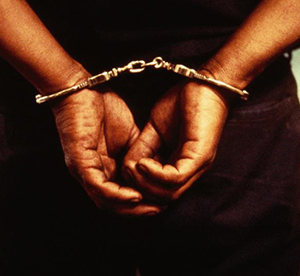Islamabad, May 21: An Indian national was today arrested here for not carrying travel documents, according to a media report.
The Indian man, who has not been identified, was arrested from F-8 area of Islamabad for not having complete travel documents, Samaa TV reported.
An official of the Indian High Commission, however, said that the mission does not have any information about the arrest so far.
A case has been filed against him and he has been sent to jail on judicial remand, the report said.
The arrest came days after the International Court of Justice stayed the execution of Indian national Kulbhushan Jadhav, who was sentenced to death by a Pakistani military court on charges of "involvement in espionage and sabotage activities" against the country.
Pakistan claims its security forces arrested him from its restive Balochistan province on March 3 last year after he reportedly entered from Iran.
However, India maintains that he was kidnapped from Iran where he had business interests after retiring from the Navy.
Jadhav's case is the latest flashpoint in the tensions between Pakistan and India.





Comments
Add new comment